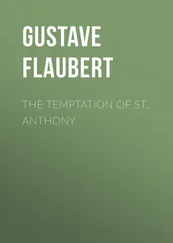Gustave Flaubert - The George Sand-Gustave Flaubert Letters
Здесь есть возможность читать онлайн «Gustave Flaubert - The George Sand-Gustave Flaubert Letters» — ознакомительный отрывок электронной книги совершенно бесплатно, а после прочтения отрывка купить полную версию. В некоторых случаях можно слушать аудио, скачать через торрент в формате fb2 и присутствует краткое содержание. Жанр: foreign_antique, foreign_prose, на английском языке. Описание произведения, (предисловие) а так же отзывы посетителей доступны на портале библиотеки ЛибКат.
- Название:The George Sand-Gustave Flaubert Letters
- Автор:
- Жанр:
- Год:неизвестен
- ISBN:нет данных
- Рейтинг книги:4 / 5. Голосов: 1
-
Избранное:Добавить в избранное
- Отзывы:
-
Ваша оценка:
- 80
- 1
- 2
- 3
- 4
- 5
The George Sand-Gustave Flaubert Letters: краткое содержание, описание и аннотация
Предлагаем к чтению аннотацию, описание, краткое содержание или предисловие (зависит от того, что написал сам автор книги «The George Sand-Gustave Flaubert Letters»). Если вы не нашли необходимую информацию о книге — напишите в комментариях, мы постараемся отыскать её.
The George Sand-Gustave Flaubert Letters — читать онлайн ознакомительный отрывок
Ниже представлен текст книги, разбитый по страницам. Система сохранения места последней прочитанной страницы, позволяет с удобством читать онлайн бесплатно книгу «The George Sand-Gustave Flaubert Letters», без необходимости каждый раз заново искать на чём Вы остановились. Поставьте закладку, и сможете в любой момент перейти на страницу, на которой закончили чтение.
Интервал:
Закладка:
That a bad physical regimen, bad habits of work in excessive quantities, and the solitude of his existence were contributory to Flaubert's melancholy, his exacerbated egotism, and his pessimism is sufficiently obvious in the letters. This Norman giant with his aching head buried all day long in his arms, groping in anguish for a phrase, has naturally a kindly disposition towards various individuals of his species – is even capable of great generosity; but as he admits with a truth and pathos, deeply appealing to the maternal sympathies of his correspondent, he has no talent for living. He has never been able, like richer and more resourceful souls, to reconcile being a man with being an author. He has made his choice; he has renounced the cheerful sanities of the world:
"I pass entire weeks without exchanging a word with a human being; and at the end of the week it is not possible for me to recall a single day nor any event whatsoever. I see my mother and my niece on Sundays, and that is all. My only company consists of a band of rats in the garret, which make an infernal racket above my head, when the water does not roar or the wind blow. The nights are black as ink, and a silence surrounds me comparable to that of the desert. Sensitiveness is increased immeasurably in such a setting. I have palpitations of the heart for nothing.
"All that results from our charming profession. That is what it means to torment the soul and the body. But perhaps this torment is our proper lot here below."
To George Sand, who wrote as naturally as she breathed and almost as easily, seclusion and torment were by no means the necessary conditions of literary activity. Enormously productive, with a hundred books to his half-a-dozen, she has never dedicated and consecrated herself to her profession but has lived heartily and a bit recklessly from day to day, spending herself in many directions freely, gaily, extravagantly. Now that she has definitely said farewell to her youth, she finds that she is twenty years younger; and now that she is, in a sense, dissipating her personality and living in the lives of others, she finds that she is happier than ever before. "It can't be imperative to work so painfully" – such is the burden of her earlier counsels to Flaubert; "spare yourself a little, take some exercise, relax the tendons of your mind, indulge a little the physical man. Live a little as I do; and you will take your fatigues and illnesses and occasional dolours and dumps as incidents of the day's work and not magnify them into the mountainous overshadowing calamities from which you deduce your philosophy of universal misery." No advice could have been more wholesome or more timely. And with what pictures of her own busy felicity she reenforces her advice! I shall produce three of them here in order to emphasize that precious thing which George Sand loved to impart, and which she had the gift of imparting, namely, joy, the spontaneous joyousness of her own nature. The first passage is from a letter of June 14, 1867:
"I am a little remorseful to take whole days from your work, I who am never bored with loafing, and whom you could leave for whole hours under a tree, or before two lighted logs, with the assurance that I should find there something interesting. I know so well how to live OUTSIDE OF MYSELF. It hasn't always been like that. I also was young and subject to indignations. It is over! Since I have dipped into real nature, I have found there an order, a system, a calmness of cycles which is lacking in mankind, but which man can, up to a certain point, assimilate when he is not too directly at odds with the difficulties of his own life. When these difficulties return, he must endeavor to avoid them; but if he has drunk the cup of the eternally true, he does not get too excited for or against the ephemeral and relative truth."
The second passage is of June 21:
"I love everything that makes up a milieu, the rolling of the carriages and the noise of the workmen in Paris, the cries of a thousand birds in the country, the movement of the ships on the waters. I love also absolute, profound silence, and, in short, I love everything that is around me, no matter where I am."
The last passage gives a glimpse of the seventeenth of January, 1869, a typical day in Nohant:
"The individual named George Sand is well: he is enjoying the marvellous winter which reigns in Berry, gathering flowers, noting interesting botanical anomalies, making dresses and mantles for his daughter-in-law, costumes for the marionettes, cutting out scenery, dressing dolls, reading music, but above all spending hours with the little Aurore, who is a marvellous child. There is not a more tranquil or a happier individual in his domestic life than this old troubadour retired from business, who sings from time to time his little song to the moon, without caring much whether he sings well or ill, provided he sings the motif that runs in his head, and who, the rest of the time, idles deliciously… This pale character has the great pleasure of loving you with all his heart, and of not passing a day without thinking of the other old troubadour, confined in his solitude of a frenzied artist, disdainful of all the pleasures of the world."
Flaubert did "exercise" a little – once or twice – in compliance with the injunctions of his "dear master"; but he rather resented the implication that his pessimism was personal, that it had any particular connection with his peculiar temperament or habits. He wished to think of himself as a stoic, quite indifferent about his "carcase." His briefer black moods he might acknowledge had transitory causes. But his general and abiding conceptions of humanity were the result of dispassionate reflections. "You think," he cries in half-sportive pique, "that because I pass my life trying to make harmonious phrases, in avoiding assonances, that I too have not my little judgments on the things of this world? Alas! Yes! and moreover I shall burst, enraged at not expressing them." And later: "Yes, I am susceptible to disinterested angers, and I love you all the more for loving me for that. Stupidity and injustice make me roar, – and I howl in my corner against a lot of things 'that do not concern me.'" "On the day that I am no longer in a rage, I shall fall flat as the marionette from which one withdraws the support of the stick."
So far as Flaubert's pessimism has an intellectual basis, it rests upon his researches in human history. For Salammbo and The Temptation of St. Anthony he ransacked ancient literature, devoured religions and mythologies, and saturated himself in the works of the Church Fathers. In order to get up the background of his Education Sentimentale he studied the Revolution of 1848 and its roots in the Revolution of 1789. He found, shall we say? what he was looking for-inexhaustible proofs of the cruelty and stupidity of men. After "gulping" down the six volumes of Buchez and Roux, he declares: "The clearest thing I got out of them is an immense disgust for the French… Not a liberal idea which has not been unpopular, not a just thing that has not caused scandal, not a great man who has not been mobbed or knifed. 'The history of the human mind is the history of human folly,' as says M. Voltaire. … Neo-Catholicism on the one hand, and Socialism on the other, have stultified France." In another letter of the same Period and similar provocation: "However much you fatten human cattle, giving them straw as high as their bellies, and even gilding their stable, they will remain brutes, no matter what one says. All the advance that one can hope for, is to make the brute a little less wicked. But as for elevating the ideas of the mass, giving it a larger and therefore a less human conception of God, I have my doubts."
In addition to the charges of violence and cruelty, which he brought against all antiquity as well as against modern times, much in the fashion of Swift or the older Mark Twain, Flaubert nursed four grave causes of indignation, made four major charges of folly against modern "Christian" civilization. In religion, we have substituted for Justice the doctrine of Grace. In our sociological considerations we act no longer with discrimination but upon a principle of universal sympathy. In the field of art and literature we have abandoned criticism and research for the Beautiful in favor of universal puffery. In politics we have nullified intelligence and renounced leadership to embrace universal suffrage, which is the last disgrace of the human spirit.
Читать дальшеИнтервал:
Закладка:
Похожие книги на «The George Sand-Gustave Flaubert Letters»
Представляем Вашему вниманию похожие книги на «The George Sand-Gustave Flaubert Letters» списком для выбора. Мы отобрали схожую по названию и смыслу литературу в надежде предоставить читателям больше вариантов отыскать новые, интересные, ещё непрочитанные произведения.
Обсуждение, отзывы о книге «The George Sand-Gustave Flaubert Letters» и просто собственные мнения читателей. Оставьте ваши комментарии, напишите, что Вы думаете о произведении, его смысле или главных героях. Укажите что конкретно понравилось, а что нет, и почему Вы так считаете.












